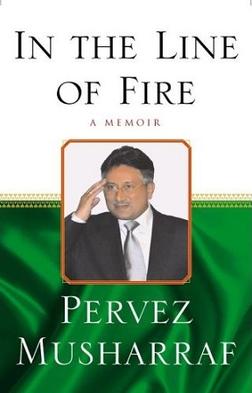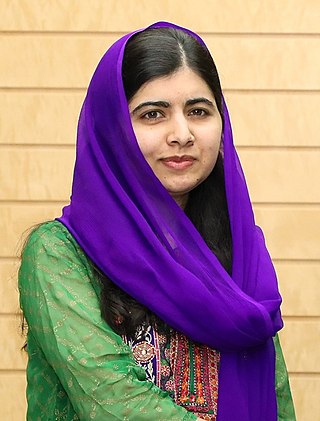Related Research Articles

East Pakistan was the eastern polity of the Islamic Republic of Pakistan, established in 1955 under the One Unit Policy, renaming and restructuring the province as such from East Bengal, which, in modern times, is split between India and Bangladesh. Its land borders were with India and Burma, with a coastline on the Bay of Bengal. East Pakistanis were popularly known as "Pakistani Bengalis"; to distinguish this region from India's state West Bengal, East Pakistan was known as "Pakistani Bengal". In 1971, East Pakistan became the newly independent state Bangladesh, which means "country of Bengal" or "country of Bengalis" in Bengali language.

Pakistan, officially the Islamic Republic of Pakistan, is a country in South Asia. It is the fifth-most populous country, with a population of over 241.5 million, having the largest Muslim population as of 2023. Islamabad is the nation's capital, while Karachi is its largest city and financial centre. Pakistan is the 33rd-largest country by area, being the second largest in South Asia. Bounded by the Arabian Sea on the south, the Gulf of Oman on the southwest, and the Sir Creek on the southeast, it shares land borders with India to the east; Afghanistan to the west; Iran to the southwest; and China to the northeast. It shares a maritime border with Oman in the Gulf of Oman, and is separated from Tajikistan in the northwest by Afghanistan's narrow Wakhan Corridor.

Urdu is an Indo-Aryan language spoken chiefly in South Asia. It is the national language and lingua franca of Pakistan, where it is also an official language alongside English. In India, Urdu is an Eighth Schedule language whose status and cultural heritage is recognised by the Constitution of India; and it also has an official status in several Indian states. In Nepal, Urdu is a registered regional dialect and in South Africa it is a protected language in the constitution. It is also spoken as a minority language in Afghanistan and Bangladesh, with no official status.
Pakistani literature is a distinct literature that gradually came to be defined after Pakistan gained nationhood status in 1947, emerging out of literary traditions of the South Asia. The shared tradition of Urdu literature and English literature of British India was inherited by the new state. Over a big time of period a body of literature unique to Pakistan has emerged in nearly all major Pakistani languages, including Balochi, English, Pushto, Punjabi, Seraiki, Sindhi, and Urdu,.

Imran Ahmed Khan Niazi is a Pakistani politician and former cricketer who served as the 22nd prime minister of Pakistan from August 2018 until April 2022. He is the founder and former chairman of the political party Pakistan Tehreek-e-Insaf (PTI) from 1996 to 2023. He was the captain of the Pakistan national cricket team throughout the 1980s and early 90s.

The Indo-Pakistani war of 1971, also known as the third India-Pakistan war, was a military confrontation between India and Pakistan that occurred during the Bangladesh Liberation War in East Pakistan from 3 December 1971 until the Pakistani capitulation in Dhaka on 16 December 1971. The war began with Pakistan's Operation Chengiz Khan, consisting of preemptive aerial strikes on eight Indian air stations. The strikes led to India declaring war on Pakistan, marking their entry into the war for East Pakistan's independence, on the side of Bengali nationalist forces. India's entry expanded the existing conflict with Indian and Pakistani forces engaging on both the eastern and western fronts. Thirteen days after the war started, India achieved a clear upper hand, and the Eastern Command of the Pakistan military signed the instrument of surrender on 16 December 1971 in Dhaka, marking the formation of East Pakistan as the new nation of Bangladesh. Approximately 93,000 Pakistani servicemen were taken prisoner by the Indian Army, which included 79,676 to 81,000 uniformed personnel of the Pakistan Armed Forces, including some Bengali soldiers who had remained loyal to Pakistan. The remaining 10,324 to 12,500 prisoners were civilians, either family members of the military personnel or collaborators (Razakars).

The All-India Muslim League (AIML) was a political party established in Dhaka in 1906 when some well-known Muslim politicians met the Viceroy of British India, Lord Minto, with the goal of securing Muslim interests on the Indian subcontinent.

The Indo-Pakistani war of 1965, also known as the second India–Pakistan war, was an armed conflict between Pakistan and India that took place from August 1965 to September 1965. The conflict began following Pakistan's Operation Gibraltar, which was designed to infiltrate forces into Jammu and Kashmir to precipitate an insurgency against Indian rule. The seventeen-week war caused thousands of casualties on both sides and witnessed the largest engagement of armored vehicles and the largest tank battle since World War II. Hostilities between the two countries ended after a ceasefire was declared through UNSC Resolution 211 following a diplomatic intervention by the Soviet Union and the United States, and the subsequent issuance of the Tashkent Declaration. Much of the war was fought by the countries' land forces in Kashmir and along the border between India and Pakistan. This war saw the largest amassing of troops in Kashmir since the Partition of India in 1947, a number that was overshadowed only during the 2001–2002 military standoff between India and Pakistan. Most of the battles were fought by opposing infantry and armored units, with substantial backing from air forces, and naval operations.
Mushtaq Gazdar was a Pakistani cinematographer, who scripted, directed and produced around 190 short feature films, documentary films and newsreels on subjects including poverty-stricken women, especially those abused, bought and sold in open flesh markets as well as helpless children.
The publishing industry in Pakistan is hampered both by a low literacy rate (65%).

Faisalabad Railway Station is located in Faisalabad city, Punjab province of Pakistan on the Khanewal-Wazirabad Branch Line. The station serves as the main train line hub for Faisalabad and grants rail access to Karachi, Lahore, Rawalpindi, Islamabad, Quetta, and Peshawar via direct routes. The Assistant Operation Officer (AOO), of the Faisalabad region of Pakistan Railways is the highest ranking officer at the station. The administrative office is located in the station building.

In the Line of Fire: A Memoir is a book that was written by former President of Pakistan Pervez Musharraf and first published on September 25, 2006. The book contains a collection of Musharraf's memories and is being marketed as his official autobiography.

The Defence Secretary of Pakistan is the Federal Secretary for the Ministry of Defence of Pakistan.
Tariq Rahman is a Pakistani academic scholar, newspaper columnist, researcher, and a writer.

Pakistanis are the citizens and nationals of the Islamic Republic of Pakistan. According to the 2017 Pakistani census, the population of Pakistan stood at over 213 million people, making it the world's fifth-most populous country. The majority of Pakistanis natively speak languages belonging to the Indo-Iranic family.

Malala Yousafzai is a Pakistani female education activist and the 2014 Nobel Peace Prize laureate at the age of 17. She is the world's youngest Nobel Prize laureate, the second Pakistani and the first Pashtun to receive a Nobel Prize. Yousafzai is a human rights advocate for the education of women and children in her native homeland, Swat, where the Pakistani Taliban had at times banned girls from attending school. Her advocacy has grown into an international movement, and according to former Prime Minister Shahid Khaqan Abbasi, she has become Pakistan's "most prominent citizen."

Muhammad Ali Jinnah was a barrister, politician and the founder of Pakistan. Jinnah served as the leader of the All-India Muslim League from 1913 until the inception of Pakistan on 14 August 1947, and then as the Dominion of Pakistan's first Governor-General until his death.

Pakistan: A Personal History is a 2011 book written by Imran Khan, the former Prime Minister of Pakistan and former cricketer. In the book, Khan details Pakistan's history; his political party, Pakistan Tehreek-e-Insaf; and his own life and cricket career.
References
- ↑ The Book on Trial: Fundamentalism and Censorship in India, Girja Kumar
- ↑ Self and Sovereignty: Individual and Community in South Asian Islam Since 1850 by Ayesha Jalal
- ↑ "Bring Back Jinnah's Pakistan". Dawn. November 1, 2009. Retrieved 2020-01-22.
- ↑ Bald, Margaret (c. 2006). Banned Books: Literature Suppressed on Religious Grounds. New York, NY: Facts on File. pp. 291–300. ISBN 0-8160-6269-2.
- ↑ "Pakistan: Book Closed on Muhammad". National Review . January 9, 2007.